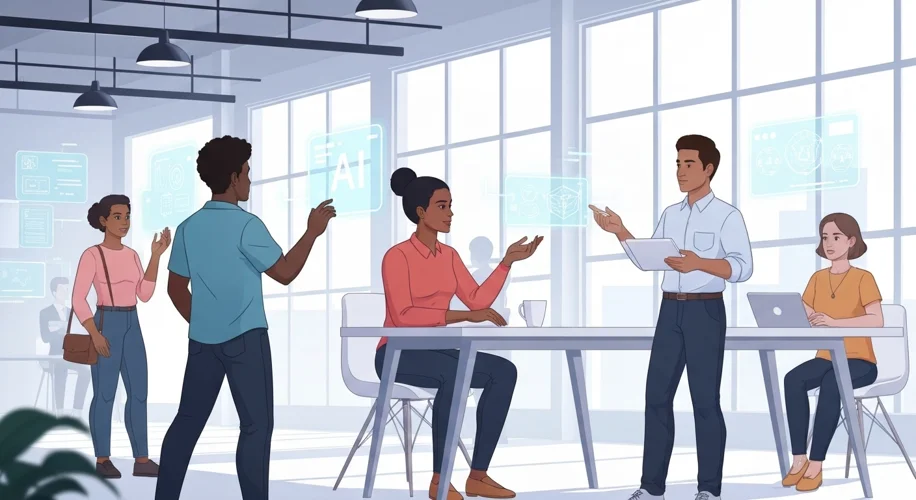Hey everyone, Mateo here!
So, there’s been a lot of chatter lately about AI and jobs, especially for those of us in white-collar fields. It’s a real thing people are talking about, and honestly, it’s something we need to unpack. The idea that AI could take over tasks traditionally done by humans, like writing reports, analyzing data, or even customer service, isn’t science fiction anymore. It’s becoming reality.
We’re seeing AI models that can draft emails, summarize complex documents, and even generate code. For many of us, these tools are becoming integrated into our daily workflows. But here’s the catch: what does this mean for job security? As AI gets better and faster, there’s a growing concern that certain roles could become redundant. Think about jobs heavily reliant on information processing or routine cognitive tasks. These are precisely the areas where AI is making huge strides.
Economically, this shift could have some pretty big implications. If a significant portion of the workforce in specific sectors finds their roles automated, we could see shifts in demand for certain skills. This might lead to a need for retraining and upskilling on a massive scale. It’s not just about jobs disappearing; it’s about how the nature of work itself is changing. We might be moving towards a future where human roles focus more on creativity, critical thinking, and managing AI systems rather than performing the tasks AI can do more efficiently.
Another point that’s worth discussing is the potential for AI to concentrate power. If a few large companies develop and control the most advanced AI systems, they could gain a significant economic advantage. This raises questions about market fairness and whether these powerful AI tools could lead to new forms of monopolies.
There’s also this ongoing debate: is the AI hype actually creating the job market disruption we’re worried about? It’s a bit of a chicken-and-egg situation. The more we talk about AI taking jobs, the more companies might invest in it to reduce costs, which then does lead to job displacement. So, is the fear of AI causing the very changes we’re afraid of? It’s a complex loop.
My take? AI isn’t just a tool; it’s a catalyst for massive change. For us, especially those of us passionate about tech and innovation, it’s super important to stay informed and adaptable. Understanding these shifts, experimenting with AI tools ourselves, and focusing on developing uniquely human skills like complex problem-solving and emotional intelligence will be key. The future of work is evolving, and being proactive about it is our best bet.
What are your thoughts on this? Let me know in the comments!

